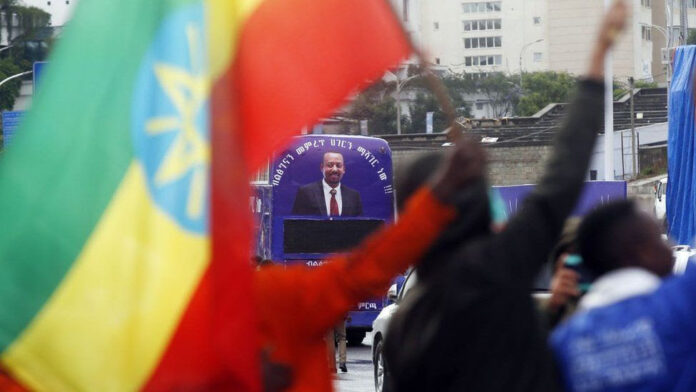Ethiopia is due to hold elections on 21 June despite a bloody conflict and looming famine in the north and escalating tensions among its biggest ethnic groups.
The polls were originally scheduled for August 2020 but were delayed, with officials citing the Covid-19 pandemic.
Voters will elect 547 members of the federal parliament and the leader of the winning party becomes prime minister. The last general election was held in 2015.
Why is the election such a big deal?
This is the first electoral test for Prime Minister Abiy Ahmed since he took office on a pledge to end repression, although there are already concerns about the integrity of the poll.
Mr Abiy rose to power in April 2018 on the back of protests against the coalition government dominated by the Tigray People’s Liberation Front (TPLF) and embarked on shaking up Ethiopia.
He clamped down on corruption, released political prisoners, appointed more women to the cabinet and made peace with neighbouring Eritrea, following a 1998-2000 border war that left tens of thousands of people dead.
His reformist zeal saw him win the 2019 Nobel Peace Prize, but just a year later, he waged a military operation in his own country – deploying troops to the northern Tigray province to oust the TPLF as the region’s ruling party after it seized military bases in what Mr Abiy saw as a bid to overthrow him.
It has led to a conflict that has killed thousands of people and has led to mass hunger and reports of a famine in the region.
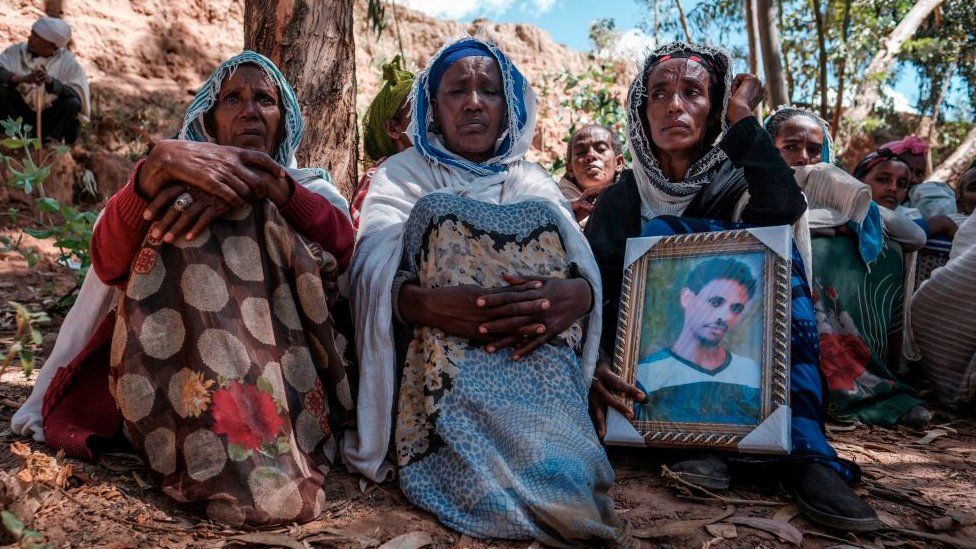
One of the causes of the deterioration in relations between the two sides was the delay of the election last year, with the TPLF accusing Mr Abiy of using the pandemic as a pretext to extend his stay in power after his term of office expired in September 2020.
So what is Mr Abiy’s vision?
Mr Abiy dissolved the Ethiopian Peoples’ Revolutionary Democratic Front (EPRDF), a TPLF-dominated alliance of four ethnically based parties, after he took office.
It had been in power since 1991, and won every seat in the 2015 election that was marred by allegations of widespread repression and rigging.
Mr Abiy has replaced the EPRDF with a new party, the Prosperity Party.
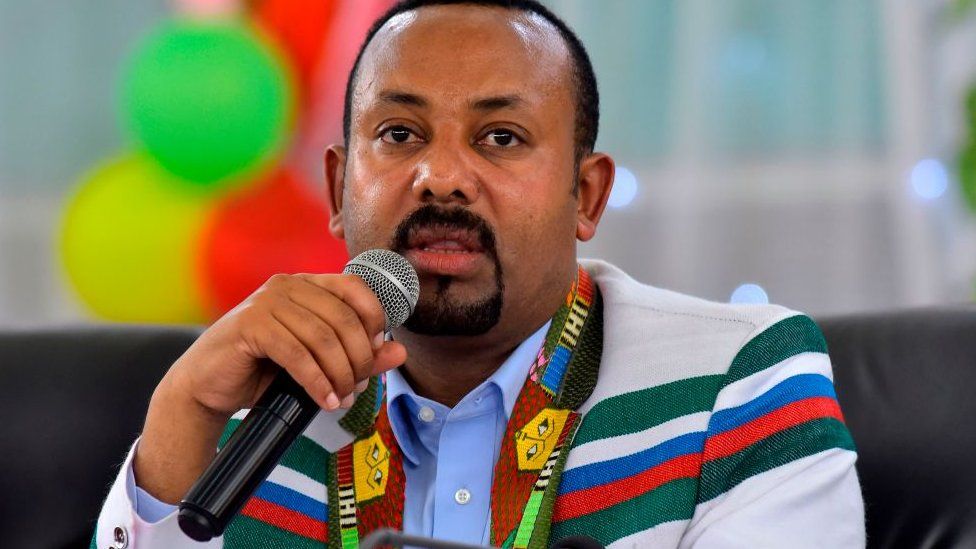
He says that having a single party will help forge national unity and reduce ethnic divisions.
However, his critics argue that trying to ignore ethnic differences will only breed resentment, with power being removed from local people and concentrated in the capital, Addis Ababa.
The TPLF refused to join the new party, and this was at the heart of its dispute with Mr Abiy.
The three other members of the EPRDF, the Amhara Democratic Party, the Oromo Democratic Party (ODP) and the Southern Ethiopian People’s Democratic Movement, agreed to dissolve.
Is there any opposition?
The National Election Board of Ethiopia said more than 40 parties have fielded candidates, but most of them are regional parties. It said more than 9,000 candidates are running in federal and regional races, adding that this was the highest number of candidates in any Ethiopian election.
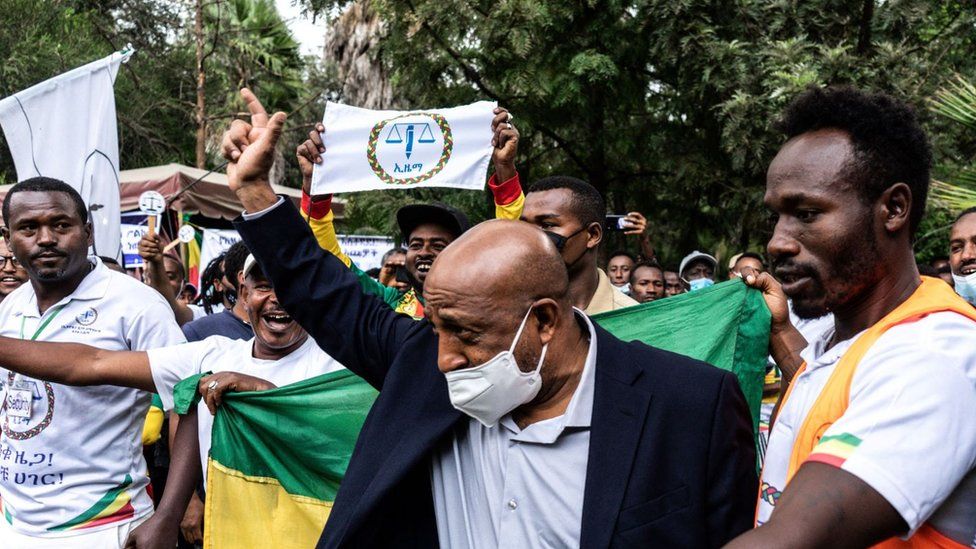
However, opposition parties have complained that a government crackdown against its officials has disrupted their plans to prepare for the polls.
Parties in Ethiopia’s most populous region, Oromia, have announced they will boycott the election.
The Oromo Liberation Front (OLF) pulled out in March, citing the jailing of some of its leaders and the alleged closure of its offices by the government – including its head office in the capital.
It is one of the oldest parties in Ethiopia with a huge following in Oromia, where Mr Abiy comes from.
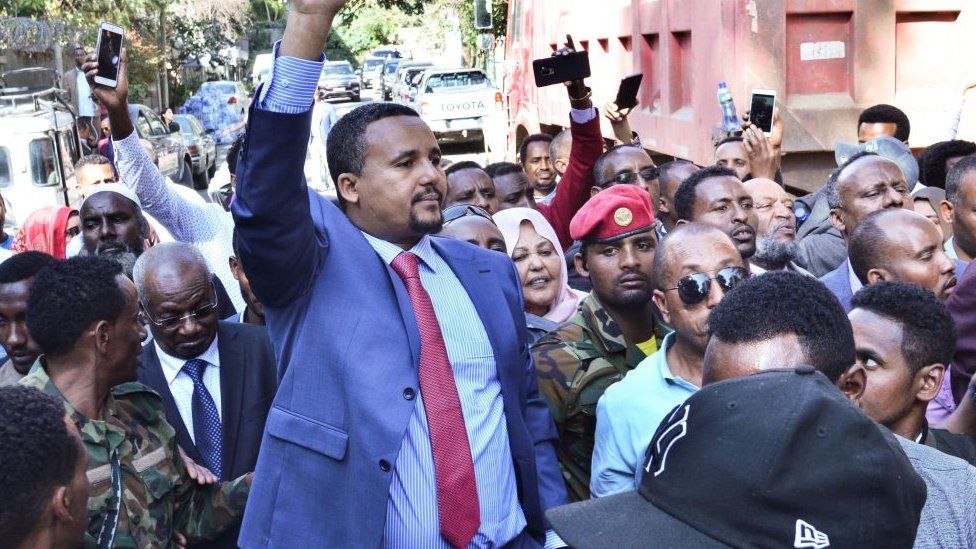
The Oromo Federalist Congress (OFC), the party of Jawar Mohammed, also announced in March that it was “forced” to pull out of the election on similar grounds.
It said those in prison include potential candidates, such as Mr Jawar, as well as its organisers and election observers.
The TPLF has been designated a terrorist organisation. Some of its leaders have been arrested, while others are on the run or continuing to wage a guerrilla war in Tigray.
Berhanu Nega, who leads the Ethiopian Citizens for Social Justice party, is the only opposition leader with a national profile taking part in the elections.
The 62-year-old politician and academic was in 2005 elected mayor of the capital, Addis Ababa, but his win was quashed by the then TPLF-dominated government and he was imprisoned.
International pressure led to him being freed after 21 months in jail and he left Ethiopia to take up a teaching post at a university in the US, returning after Mr Abiy took office.
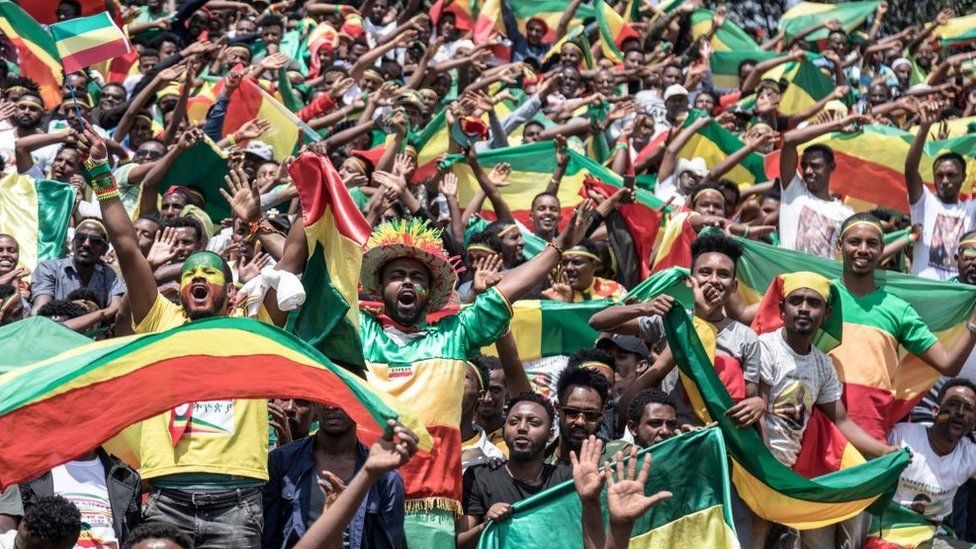
He was one of the founding members of the Ginbot 7 group – a rebel group that coordinated a 10-year armed resistance against the Ethiopian government.
The group suspended its armed resistance in June 2018, saying Mr Abiy’s reforms had given hope that “genuine democracy” may be “a real possibility”.
Is the election being held everywhere?
No.
The election will not be held in Tigray where fighting continues despite Mr Abiy declaring victory in November 2020. The state is now under an interim administration after parliament declared the Tigray administration illegal and voted to replace it.
The election board said a date for elections in Tigray would be set once the interim government opened election offices, news agency Reuters reported.
Voting has also been postponed until 6 September in another 54 constituencies around the country, with the electoral board citing defects in the ballot papers.
In total, 78 of the 547 constituencies will not vote, the Reuters news agency reports, quoting the electoral board which cited logistical and security problems.
Ethnic violence has increased in several regions since Prime Minister Abiy came to power. There are fears that this could undermine the poll.
As well as Tigray, federal forces are battling an insurgency in Oromia and quelling ethnic attacks in Amhara. In the western Benishangul-Gumuz region, fighting over land and resources has led to the death of hundreds since last year.

The elections have led to increased tension over disputed border areas between the different regions, which currently hold a lot of power in Ethiopia’s federal system.
The electoral body in February raised concerns over a lack of security in 98 constituencies and accused some regional governments – including those of Oromia and Amhara – of not providing enough security.
Will it be free and fair?
In May, the EU withdrew its Electoral Observation Mission citing a “lack of agreement on key parameters”.
It accused the Ethiopian authorities of not giving assurances on the independence of the mission and refusing to let them import communication systems for their security.
The Ethiopian foreign ministry said the EU’s decision was “neither essential nor necessary to certify the credibility of an election”.
A group of US Senators last month called for the elections to be postponed because of ongoing security problems.
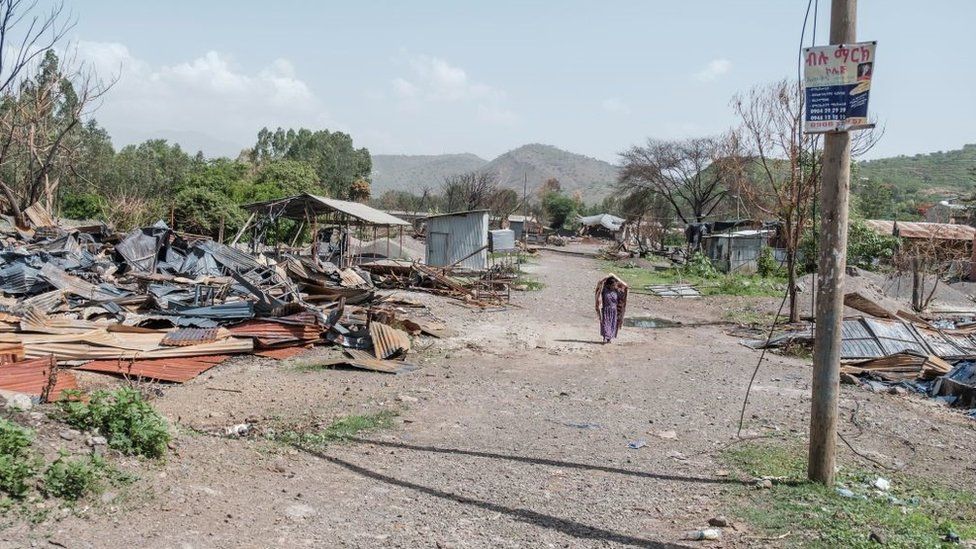
The election board responded by saying they were trying to hold the elections in accordance with Ethiopia’s laws and international standards.
It acknowledged that “shortfalls are inevitable”, with chairperson Birtukan Midekssa saying any major reforms now could “imperil the overall integrity, credibility, inclusivity and timeliness of the electoral process”.
Officials say more than 37 million voters have registered to vote out of about 50 million potential voters.
Under the initial election schedule, preliminary results from constituencies were to be announced within five days from the day of the election, while final certified results were to be announced within 23 days.
SOURCE: BBC


